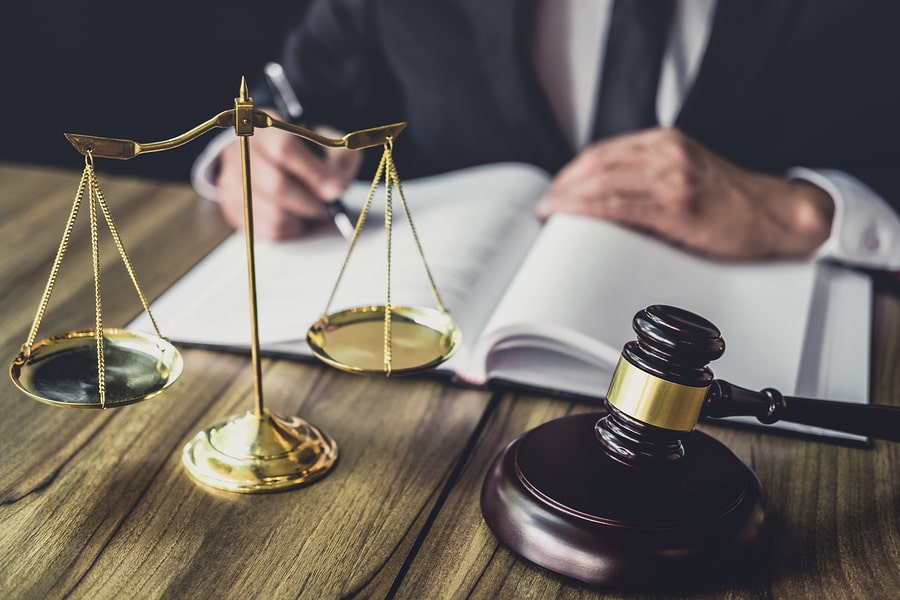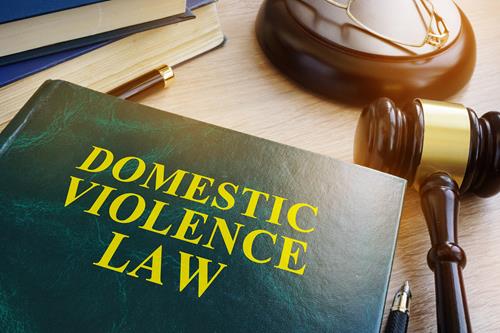Does the Victim Have to Testify in a Domestic Violence Case?
When a victim of domestic violence testifies in court, their testimony can have a significant impact on the outcome of the case. In this article, we will answer the question: does the victim have to testify in a domestic violence case? We will also review what happens in the absence of a testimony and how a New Jersey Criminal Defense Lawyer can help you with your case.
Civil Matter
 In New Jersey, domestic violence cases are considered civil matters. The victim of domestic violence is known as the plaintiff in the case, and the person who allegedly committed the act of domestic violence is called the defendant.
In New Jersey, domestic violence cases are considered civil matters. The victim of domestic violence is known as the plaintiff in the case, and the person who allegedly committed the act of domestic violence is called the defendant.
The plaintiff seeks to get a Temporary Restraining Order against the defendant from the court. Within 10 days, the matter is listed for a hearing in the Superior Court for the plaintiff to try to get a Final Restraining Order against the defendant.
At the hearing, the plaintiff and defendant may be represented by an attorney that they hire. There aren’t prosecutors or public defenders at the hearing because the matter is civil in nature and not criminal. However, if the defendant violates the restraining order, then he or she will be charged with the offense of criminal contempt of court.
Burden of Proof
 In cases of domestic violence, the burden of proof falls on the plaintiff. This means that the plaintiff is responsible for proving that the defendant committed an act of domestic violence such as harassment or assault and that the plaintiff needs the protection of a restraining order for his or her safety.
In cases of domestic violence, the burden of proof falls on the plaintiff. This means that the plaintiff is responsible for proving that the defendant committed an act of domestic violence such as harassment or assault and that the plaintiff needs the protection of a restraining order for his or her safety.
The burden of proof is the preponderance of the evidence. This means that the plaintiff must only present the greater weight of the credible evidence. Put another way, the plaintiff only has to prove that their claims are more likely to be true than not true; the evidence only has to tip the scale slightly in favor of their claims.
The importance of the victim’s testimony
 There are many reasons why the victim might be unwilling to testify, but the plaintiff must still support their claims by a preponderance of the evidence.
There are many reasons why the victim might be unwilling to testify, but the plaintiff must still support their claims by a preponderance of the evidence.
In the process of proving their claims, there are many forms of evidence that the plaintiff can use. These forms of evidence may include but are not limited to:
- Photographic Evidence
Photographs can be useful as evidence in a domestic violence case. They can show details of the actual events and any injury to the plaintiff such as bruises. While they can be useful, photographs rarely contain all of the necessary information to be useful as evidence. This is especially true if there is no testimony from the plaintiff to add relevant context to the photographs.
- An Independent Witness
Someone who saw the domestic violence incident happen, such as a bystander, friend, or family member can testify on behalf of the plaintiff.
- Video Footage
As already mentioned, pictures alone may not be sufficient unless accompanied by other forms of evidence. Video footage of the incident, however, could strengthen the plaintiff’s case.
- Audio Recordings
In some cases, the plaintiff may present audio recordings such as the 911 call recordings or cell phone recordings.
- Text Messages and Voicemails
Text messages, voicemails, and other communications that are recorded can be valuable pieces of evidence. They can be used to demonstrate that the plaintiff is in fear of her/his health, safety, and welfare.
Is the victim required to testify?
 The short answer is “no.” If they don’t, however, the lack of evidence may cause the judge to not grant a Final Restraining Order to the plaintiff.
The short answer is “no.” If they don’t, however, the lack of evidence may cause the judge to not grant a Final Restraining Order to the plaintiff.
For example, one of the elements of proof is that the plaintiff demonstrates that they is fearful for their health, safety, and welfare. In most cases, this will be difficult to prove unless the plaintiff testifies to that effect.
Consult a New Jersey Criminal Defense Lawyer Today
If you have domestic violence charges or a restraining order filed against you, you will need the best possible defense. Contact New Jersey criminal defense lawyer Matthew V. Portella, Esquire at the Law Office of Matthew V. Portella, LLC, at 856-245-5912 to schedule a consultation.
